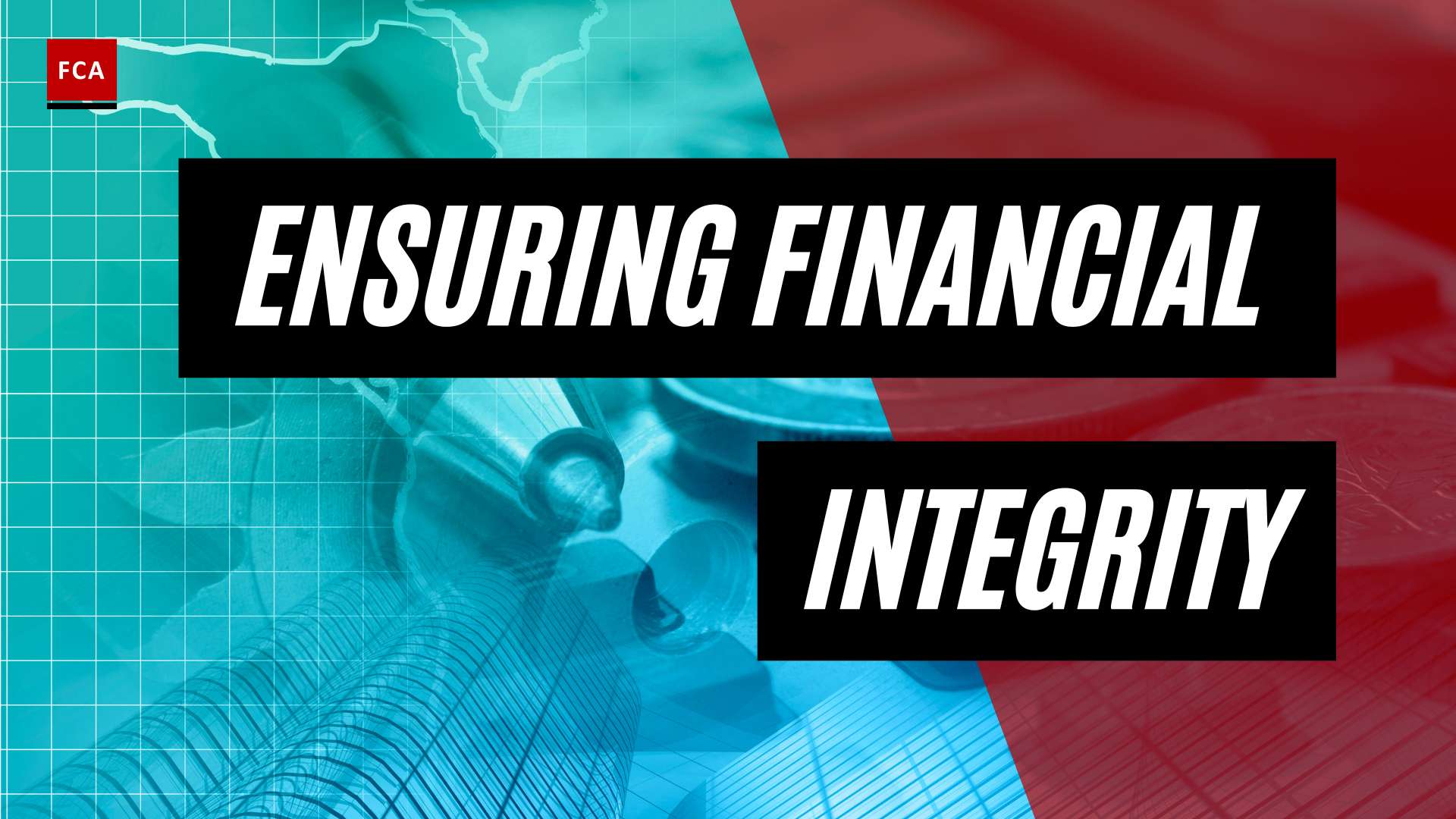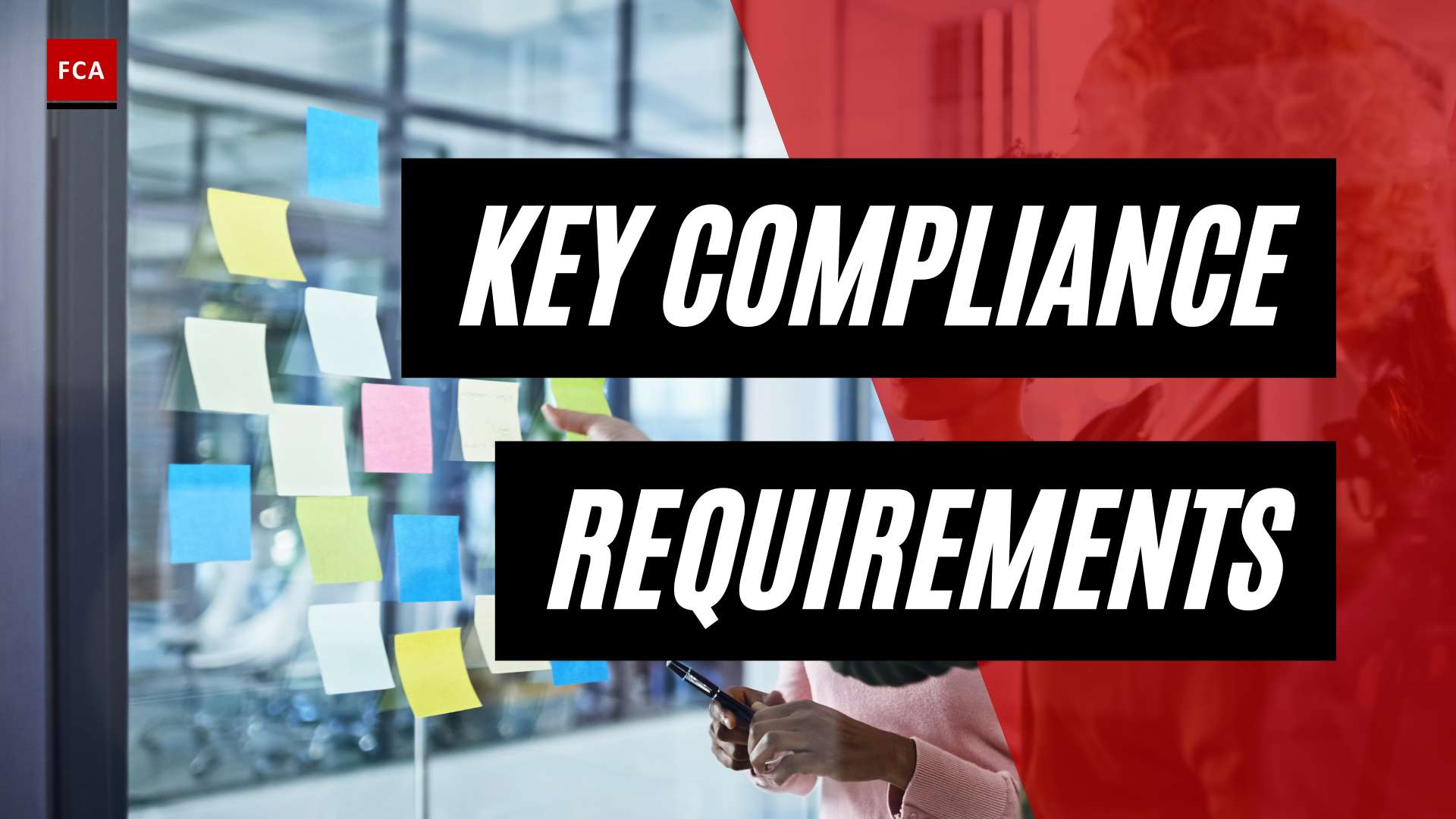Starting a Career in AML
Embarking on a career in Anti-Money Laundering (AML) can be an exciting and rewarding path for professionals interested in combating financial crimes. In this section, we will provide an overview of the AML career, highlight the growing demand for AML specialists, and discuss the essential skills and qualifications needed to excel in this field.
Overview of AML Career
An AML career involves working to prevent and detect money laundering activities, as well as the financing of terrorism. AML specialists play a critical role in safeguarding the integrity of the financial system and ensuring compliance with regulatory requirements. They analyze financial transactions, identify suspicious activities, and report them to the appropriate authorities.
The scope of AML careers has expanded beyond traditional banks. Professionals in this field can find employment opportunities at accounting firms, financial service institutions, government agencies, private companies, and more. The regulatory landscape has also broadened, with regulations now applying to a wider range of businesses under the Proceeds of Crime (Money Laundering) and Terrorist Financing Act (CPA Canada – AML Job Market Trends).
Growing Demand for AML Specialists
The demand for AML specialists is on the rise, driven by increasing regulatory requirements and the escalating prevalence of financial crimes. The AML job market is projected to grow at a rate of 12% annually, with over 10,000 new job openings expected in the United States alone each year (Feedzai). In Canada, the federal government has been actively updating its AML regime and working towards establishing a pan-Canadian registry of beneficial ownership, further contributing to the growing demand for AML professionals.
Skills and Qualifications for AML Professionals
To succeed in an AML career, professionals need to possess a combination of technical skills, industry knowledge, and personal qualities. AML specialists should exhibit qualities such as creativity, adaptability, vigilance, curiosity, good judgment, communication skills, strong ethics, and professional skepticism. Having a passion for making a difference and caring about social issues is also essential in this field.
In addition to these personal qualities, AML professionals should acquire the necessary skills and qualifications. Technical skills, especially in data analytics, are increasingly important as AML compliance roles involve handling large volumes of financial data. AML specialists should also stay updated on industry regulations, trends, and emerging technologies related to financial crimes.
Many organizations in the AML field value professional certifications, such as Certified Anti-Money Laundering Professional (CAMP) and Certified Public Accountant (CPA). These certifications demonstrate a commitment to upholding industry standards and continuous learning. Obtaining industry certifications and participating in relevant training programs can enhance career prospects and open doors to advanced roles in AML compliance.
In summary, starting a career in AML offers professionals an opportunity to contribute to the fight against financial crimes. The demand for AML specialists is growing, and individuals with the right combination of skills, qualifications, and personal qualities can excel in this dynamic field. Continuous learning, staying updated on regulatory developments, and building expertise in data analytics are key to thriving in an AML career.
Trends in AML Compliance
As the field of anti-money laundering (AML) continues to evolve, several key trends are shaping the landscape of AML compliance. These trends reflect the changing nature of financial crimes and the efforts to combat them effectively. In this section, we will explore some of the prominent trends in AML compliance, including emerging AML technology trends, increasing AML fines and enforcement actions, the role of artificial intelligence (AI) in AML, collaboration between financial institutions and regulators, and the challenges posed by digital currencies and virtual assets.
Emerging AML Technology Trends
The rapid advancement of technology is revolutionizing the AML landscape. Financial institutions are increasingly leveraging new technologies to enhance their AML compliance efforts. According to Symphony AI, emerging AML technology trends include:
- Integration of AI and machine learning: Financial institutions are integrating AI and machine learning solutions to detect and prevent financial crimes. These technologies enable the analysis of vast amounts of data, identification of patterns, and detection of suspicious activities, improving risk management and reducing false positives.
- Automation and robotic process automation (RPA): AML compliance processes are being automated to streamline workflows and enhance efficiency. RPA technology allows for the automation of repetitive tasks, freeing up compliance professionals to focus on more complex analysis and decision-making.
- Data analytics and visualization: Advanced data analytics tools are being employed to analyze large volumes of structured and unstructured data for AML purposes. Visualization techniques facilitate the interpretation of complex data, enabling faster and more accurate decision-making.
Increasing AML Fines and Enforcement Actions
Regulators worldwide are intensifying their focus on AML compliance, leading to a significant increase in AML fines and enforcement actions. Financial institutions that fail to meet regulatory requirements face substantial penalties. According to Symphony AI, increasing AML fines and enforcement actions are expected to continue.
In 2022, fines related to AML and other financial crime breaches against banks and financial institutions increased by 50%, totaling nearly $5 billion compared to the fines in 2021. This upward trend highlights the growing importance of robust AML compliance programs and the consequences of non-compliance.
Role of Artificial Intelligence in AML
The role of AI in AML is becoming increasingly critical. AI technologies, such as machine learning algorithms, natural language processing, and anomaly detection, are being utilized to enhance AML processes. AI-powered systems can analyze vast amounts of data, identify patterns, and detect suspicious activities more efficiently than traditional methods.
Collaboration Between Financial Institutions and Regulators
Collaboration between financial institutions and regulators is crucial for effective AML compliance. Regulators are working closely with financial institutions to share information, insights, and best practices. This collaboration helps identify emerging risks, develop regulatory frameworks, and enhance the overall effectiveness of AML measures.
Challenges Posed by Digital Currencies and Virtual Assets
The rise of digital currencies and virtual assets presents new challenges for AML compliance. Criminals are increasingly exploiting these technologies for illicit activities, making it essential for regulators and financial institutions to adapt their AML frameworks accordingly. The anonymity and cross-border nature of digital currencies require innovative approaches to monitor and prevent money laundering and terrorist financing.
As the AML landscape continues to evolve, AML professionals need to stay abreast of these trends and adapt their strategies accordingly. The effective integration of technology, collaboration between stakeholders, and a proactive approach to addressing emerging challenges are crucial for combating financial crimes and ensuring regulatory compliance.
High-Risk Industries for Money Laundering
Money laundering and terrorist financing can occur in various industries, making it crucial for anti-money laundering (AML) professionals to be aware of high-risk sectors. Identifying these industries helps in implementing effective AML measures and mitigating the risks associated with financial crimes. Some of the high-risk industries for money laundering include:
Financial Institutions
Financial institutions, including banks, currency exchange houses, check cashing facilities, and payment processing companies, are particularly susceptible to money laundering and terrorist financing activities (sanctions.io). The nature of their operations and involvement in monetary transactions make them attractive targets for individuals seeking to disguise the origins of illicit funds.
Real Estate
The real estate sector is another industry prone to money laundering and terrorist financing. Real estate transactions offer an avenue for criminals to launder money by purchasing properties using illicit funds with the intention of legitimizing their origins. Industries involved in the sale of high-value assets like cars, boats, planes, and real estate are at higher risk due to the vulnerability of these products to being used for cleaning up dirty money (sanctions.io).
High-Volume Electronic Payments
Industries involving a large volume of electronic payments, such as ACH transfers, wire transfers, remittances, and prepaid cards, are indicative of illegal activities and pose a higher risk of money laundering and terrorist financing (sanctions.io). The anonymity and speed of electronic transactions make it easier for criminals to move funds across borders and obscure their illicit origins.
Virtual Service Providers
Companies offering services virtually without physical interaction with clients, such as remote banking and payment services, currency exchanges, and real estate transactions where the buyer is not present, are at higher risk of being used for money laundering and terrorist financing (sanctions.io). The lack of face-to-face contact and the ability to conduct transactions remotely make it more challenging to verify the identities of customers and detect suspicious activities.
Investment and Asset Sales
Industries involved in investment businesses, trust and company services, accounting services, and insolvency services, as well as those engaged in the sale of high-value assets like cars, boats, planes, and real estate, are at higher risk for money laundering and terrorist financing. The vulnerability of these products to being used for cleaning up dirty money makes it essential for AML professionals to be vigilant in monitoring transactions and identifying potential red flags.
Understanding the high-risk industries for money laundering is crucial for AML professionals to effectively combat financial crimes. By being aware of the vulnerabilities and implementing proper AML measures, professionals can contribute to safeguarding the integrity of the financial system and protecting businesses from the risks associated with money laundering and terrorist financing.
AML Job Market Trends
The AML job market is continuously evolving, driven by the increasing need for expertise in combating money laundering and financial crimes. Understanding the trends within this field is crucial for professionals looking to navigate their AML careers effectively.
Projected Growth in AML Jobs
The AML job market is projected to experience significant growth, with an estimated annual growth rate of 12% and over 10,000 new job openings expected in the United States alone each year (Feedzai). This growth can be attributed to the rising regulatory requirements and the ever-evolving nature of financial crimes. As financial institutions strive to stay ahead of money laundering activities, the demand for skilled AML professionals continues to rise.
Expanding AML Compliance Roles
AML compliance roles are no longer limited to traditional banks; they now extend to fintech firms, money service businesses, and other financial institutions. This broadening of the job market creates new opportunities for professionals with AML expertise. As the global financial landscape evolves, organizations across various sectors recognize the importance of implementing robust AML measures and are actively seeking qualified individuals to fulfill compliance roles.
Importance of Technical Skills and Data Analytics
To effectively combat money laundering, employers now seek AML professionals with technical skills and expertise in data analytics. The increasing volumes of data related to financial transactions require professionals who can navigate complex systems and extract meaningful insights to identify potential money laundering activities. Upskilling and obtaining necessary technical knowledge are essential for individuals pursuing AML careers in today’s job market.
Shift Towards Remote Work Opportunities
The AML job market has also witnessed a shift towards remote work opportunities. Advancements in technology and the COVID-19 pandemic have accelerated the adoption of remote work arrangements across industries, including AML. This shift offers professionals in the field greater flexibility and opens up possibilities for talent acquisition on a global scale. Remote work arrangements can provide a better work-life balance and attract top talent regardless of geographical location (Feedzai).
Regulatory Developments in AML
As the fight against money laundering continues, regulatory bodies around the world are actively implementing various measures to strengthen anti-money laundering (AML) frameworks. These regulatory developments aim to enhance the effectiveness of AML measures, address emerging threats, and promote collaboration between financial institutions and regulators. Let’s explore some of the key regulatory developments in the field of AML.
Global Regulatory Reforms
There is a growing trend of global regulatory reforms in the past five years, highlighting a shift from the dominance of the United States in regulating bribery, corruption, and money laundering. Countries across the globe are strengthening their AML enforcement practices and adopting more robust regulatory frameworks to combat financial crimes. These reforms aim to create a more unified and cohesive global response to money laundering.
Focus on Technology Integration
National regulators are increasingly emphasizing the integration of technology into AML compliance and due diligence processes. They expect companies to adopt sophisticated technological tools to monitor and identify potential money laundering and terrorist financing activities. This technological integration allows for more efficient and effective detection of suspicious transactions, aiding in the fight against money laundering.
Anti-Money Laundering Measures and Effectiveness
Regulators are shifting their focus from mere compliance to the effectiveness of AML measures. The Office of the Comptroller of the Currency reported that a majority of banks in the United States have satisfactory AML programs and can now enhance their effectiveness, while still maintaining compliance standards. This shift highlights the importance of a risk-based approach to AML and the need for continuous improvement in detecting and preventing money laundering activities.
Addressing AML Threats
Regulators are working diligently to address evolving AML threats. System-wide improvements in AML practices are gaining renewed interest, recognizing the limitations of individual banks’ perspectives. Efforts include better information sharing, analytics, collaboration, and feedback mechanisms to enhance the overall effectiveness of AML measures (McKinsey). By addressing emerging threats, regulators aim to stay ahead of criminals and minimize the risks associated with money laundering.
National Initiatives and Reforms
Countries worldwide are implementing national initiatives and reforms to strengthen their AML frameworks. For instance, France has introduced an Action Plan against Money Laundering and Terrorist Financing, granting more powers to its Financial Investigation Unit for intercepting suspicious money flows. Germany has established a new agency with investigative powers to enhance the country’s AML enforcement. These national initiatives aim to enhance the effectiveness of AML measures and improve the conviction rates for money laundering-related prosecutions (LexisNexis).
Keeping up with these regulatory developments is crucial for professionals working in compliance, risk management, anti-money laundering, and anti-financial crime. Staying informed about global reforms, technology integration, effectiveness of AML measures, addressing emerging threats, and national initiatives will help individuals navigate the ever-evolving landscape of AML regulations and contribute to the fight against money laundering.
AML Job Market in the UAE
The United Arab Emirates (UAE) offers a thriving job market for professionals in the field of Anti-Money Laundering (AML) compliance. The country’s strategic location and role as a global financial hub contribute to the availability of lucrative opportunities for skilled AML professionals.
Lucrative Opportunities in the UAE
The UAE’s financial sector continues to experience significant growth, leading to an increased demand for AML compliance officers. With Dubai and Abu Dhabi serving as major financial centers in the region, professionals in AML can find a wealth of career opportunities in banks, financial institutions, and other organizations operating in the UAE. The country’s commitment to combatting financial crimes and adhering to international AML standards further contributes to the expansion of the job market.
Job Openings for AML Compliance Officers
The UAE’s robust AML job market is reflected in the numerous job openings for AML compliance officers. Financial institutions in the UAE recognize the importance of maintaining strong AML compliance programs and are actively seeking professionals with the necessary skills and qualifications to ensure compliance with regulatory requirements. These job openings span various roles within AML compliance, including AML analysts, investigators, officers, and managers.
Skills and Qualifications for AML Careers
Professionals looking to pursue a career in AML compliance in the UAE should possess a diverse set of skills and qualifications. AML compliance officers are expected to have a solid understanding of regulatory requirements, risk assessment methodologies, and due diligence procedures. Strong analytical skills, attention to detail, and the ability to effectively communicate and collaborate with stakeholders are also essential.
Continuous learning and staying updated with industry trends and regulatory changes are crucial for AML professionals in the UAE. Attending relevant training programs, obtaining industry certifications, and participating in professional development opportunities help ensure that AML compliance officers remain equipped to address evolving financial crime threats.
Continuous Learning and Adaptability
The AML landscape is constantly evolving, with new regulatory developments and emerging technologies shaping the industry. AML compliance officers in the UAE must prioritize continuous learning and adaptability to effectively perform their roles. Staying informed about global regulatory reforms, technological advancements, and best practices allows professionals to proactively address AML threats and contribute to the overall financial integrity of the UAE’s financial sector.
As the AML job market in the UAE continues to grow, professionals with the right skills and qualifications can find rewarding career opportunities. By staying up-to-date with industry trends, enhancing their knowledge and skills, and demonstrating a commitment to continuous learning, AML compliance officers can thrive in the dynamic and lucrative AML job market in the UAE.
Evolution of AML Regulations
The field of anti-money laundering (AML) has undergone significant regulatory developments over the years to counteract the global threat of money laundering and terrorist financing. This section explores the role of key regulatory bodies and the challenges faced in combating money laundering, as well as the emergence of technology-driven solutions.
Role of FATF in AML
The Financial Action Task Force (FATF) was established in July 1989 with the goal of countering money laundering and promoting international standards for AML. Initially focused on money laundering, FATF expanded its mission after the September 11 terrorist attacks in 2001 to combat terrorist financing as well. This led to the enhancement of regulations and increased responsibilities for institutions subject to them (Sanction Scanner).
Anti-Money Laundering Directives in the EU
The European Union (EU) has played a crucial role in shaping AML regulations within its member states. The first Anti-Money Laundering Directive was introduced in 1990 to prevent financial systems from being misused for money laundering purposes. Since then, EU directives have undergone continuous revisions to mitigate money laundering and terrorist financing risks. The sixth Anti-Money Laundering Regulation is currently being prepared for compliance by EU member states (Sanction Scanner).
Bank Secrecy Act and FinCEN in the US
In the United States, the Bank Secrecy Act (BSA) has been instrumental in combating money laundering since its establishment in 1970. Administered by the Financial Crimes Enforcement Network (FinCEN), the BSA has evolved and been modified over time to provide effective tools for AML to various regulatory agencies. With the advent of technological advancements and big data, AML software solutions have become crucial. Financial institutions now utilize in-house AML software or third-party providers to implement comprehensive AML programs.
Challenges in Combating Money Laundering
Combating money laundering poses significant challenges for financial institutions, law enforcement agencies, and regulators. Financial criminals employ sophisticated tools and ample funding to manipulate identities and carry out illegal transactions. These activities complicate efforts to safeguard institutions and clients against money laundering threats. Staying ahead of criminals and effectively countering money laundering remains an ongoing challenge in the AML landscape (Sanction Scanner).
Technology-Driven Solutions for AML
To address the evolving nature of money laundering crimes and risks, financial institutions have increasingly adopted technology-driven solutions. Automated Know Your Customer (KYC) and Customer Due Diligence (CDD) tools, artificial intelligence-powered AML scanning solutions, and transaction monitoring software are being employed to verify customer identities, screen thousands of sanctions lists, and monitor customer transactions in real-time. These technology-driven solutions play a vital role in combating financial crimes, ensuring compliance with AML regulations, and enhancing the effectiveness of AML programs.
As AML regulations continue to evolve, financial institutions and regulatory bodies must remain vigilant and adaptive to emerging money laundering threats. The integration of advanced technologies and the implementation of robust AML programs are crucial in safeguarding the integrity of the global financial system and preventing money laundering activities.








